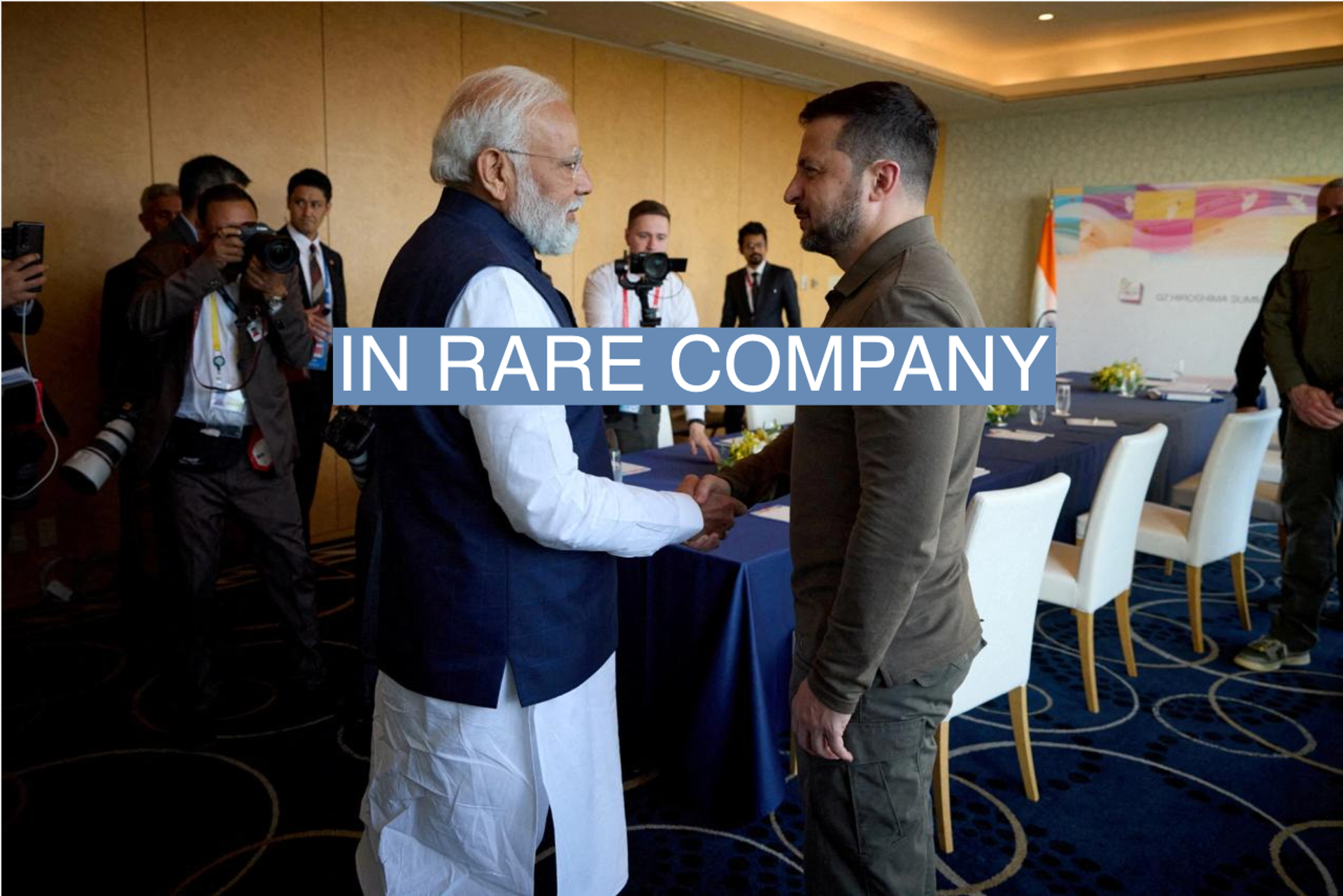The News
Indian Prime Minister Narendra Modi is set to address a joint session of Congress on June 22, officials announced Friday.
“During your address, you will have the opportunity to share your vision for India’s future and speak to the global challenges our countries both face,” U.S. congressional leaders wrote in a letter to Modi.
It will be the second time Modi has formally addressed U.S. lawmakers, following a 2016 speech that made him the fifth Indian prime minister to address the House and Senate.
Modi will join a small group of world leaders who have addressed Congress more than once.
Know More
According to House historical records, only three other people have addressed Congress more than once.
Winston Churchill
The former British Prime Minister addressed Congress three times: in 1941, 1943, and 1952. The first of those addresses was to an “informal meeting of Congress” which is when leaders speak to members of the House and Senate without convening a formal joint session.
He was just the second foreign leader to speak before Congress, following Hawaii’s King Kalakaua of Hawaii in 1874.
His first speech was a historic wartime address following the attack on Pearl Harbor.
Over 10 years later, when Churchill returned to Capitol Hill, he spoke of the need to defend Western Europe amid the Cold War.
“I have come here to ask not for gold but for steel, not for favors but for equipment,” he said.
Benjamin Netanyahu
As Israel’s prime minster, Netanyahu has addressed Congress three times over a two-decade span. He first spoke in 1996, and then in 2011 and 2015 after returning to power.
His 2015 speech was controversial because the White House was reportedly not consulted about the invitation, and then-Vice President Joe Biden didn’t attend. In his speech, Netanyahu criticized the nuclear deal the U.S. was making with Iran.
Volodymyr Zelenskyy
The Ukrainian president, hailed by Western nations as a hero following Russia’s invasion in 2022, has addressed Congress both informally and formally.
In March 2022, shortly after the invasion, Zelenskyy pleaded for the U.S. to come to his country’s aid, speaking to legislators virtually during an informal meeting.
He visited Congress in person later that year, giving a high-profile address in which he said America’s funding of Ukraine during the war “is not charity.”
“It’s an investment in the global security and democracy that we handle in the most responsible way,” he said.
